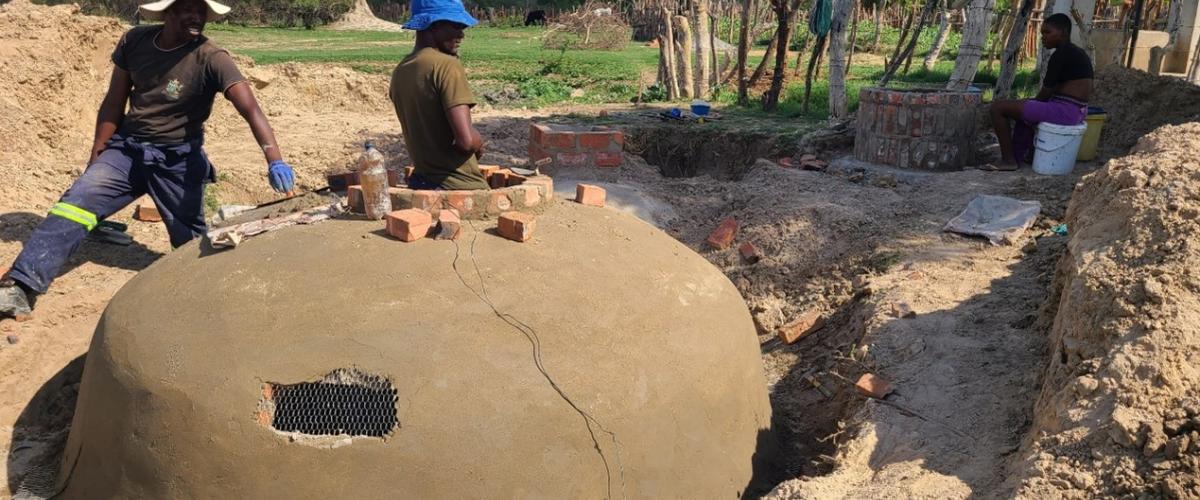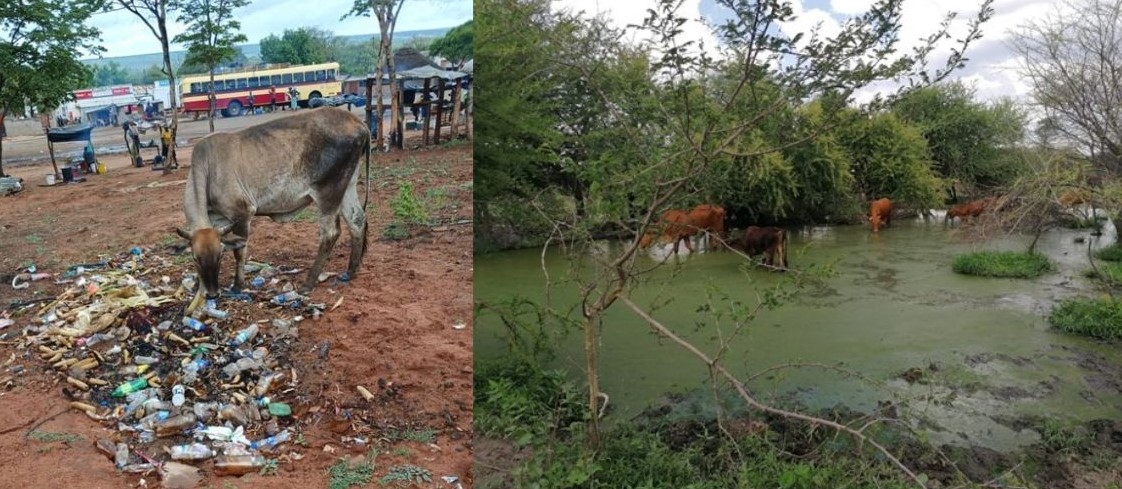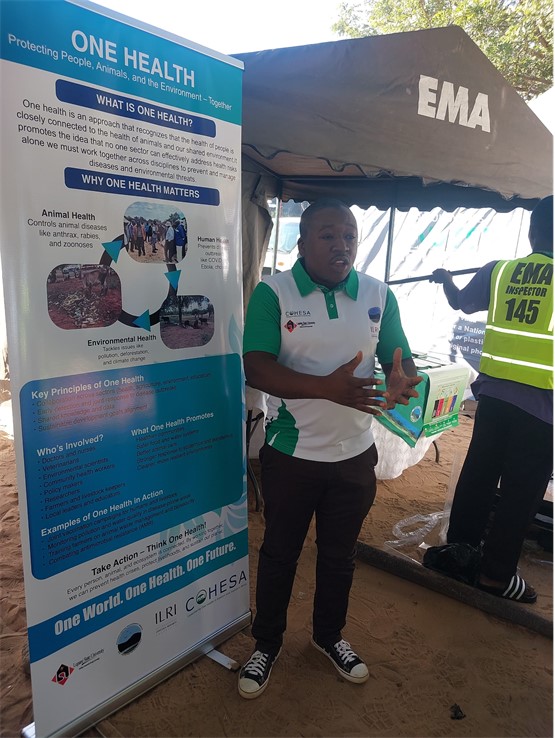
Lupane is one of two sites in Zimbabwe that will benefit from a waste management project launched in 2024 by the Capacitating One Health in Eastern and Southern Africa (COHESA) project. (Turning waste into resources using a One Health approach in rural Zimbabwe). The Lupane project aims to address the persistent challenge of solid waste management in Ward 19 through the development of a comprehensive and sustainable waste management model guided by the One Health approach that recognizes the interconnectedness of human, animal, and environmental health. The project integrates multiple interventions to improve public health and environmental outcomes.
The model focuses on three key technologies: a waste recovery center for collection and segregation, a thermal chamber for the pyrolysis of plastic waste, and a biogas digester powered by organic waste from a community slaughter pole. These technologies are complemented by community training on solid waste management, fostering local ownership and sustainability.

Project progress
Significant progress has been made, including the completion of a baseline study to guide interventions, stakeholder consultations, and the construction of a nine-cubic-meter biogas digester and two waste recovery centres. The biogas digester, built with technical support from the Rural Electrification Agency (REA), is designed to process organic waste from the slaughter pole - REA has committed to providing plumbing services and donating a stove to utilize surplus gas.
The Environmental Management Agency (EMA) supported the initiative by supplying waste collection cages and funding environmental sample analyses. Community members actively participated in the construction of waste recovery centres at St Luke’s hospital and Kenmaur business centres, enhancing local engagement and commitment. Additionally, the Bulawayo Polytechnic College is designing and fabricating the thermal pyrolysis chamber, which will use gas from the biogas digester as an energy source. The Kusile Rural District Council provided land for the installation of the technologies, and local businesses have shown support by providing refreshments during community workdays.
A ward-level waste management committee has been established, and awareness campaigns based on baseline results have been launched. Training sessions are ongoing, focusing on project management, waste handling, One Health principles, and the operation of the technologies. Notably, the project has kickstarted the repair of wastewater pipes, reducing zoonotic disease-risks and illustrating the broader benefits of a One Health approach.
This initiative promotes interdisciplinary collaboration and sustainable innovation to address environmental health challenges in Lupane, offering a replicable model for similar communities across Zimbabwe and beyond, said Bright Chisadza, the co-principal investigator one the waste management project.

This is a very important project for our community as it addresses waste management challenges in our business centers.’ ‘We have received support from the business association and other stakeholders who are contributing refreshments and locally available materials for teams involved in the construction of the waste collection centers, said Thabani Dube, the Lupane ward councilor.
As the project progresses, the next steps include the installation of a thermal chamber to finalize the technology component. Ongoing community engagement remains a priority, to promote project adoption, uptake and sustainability.